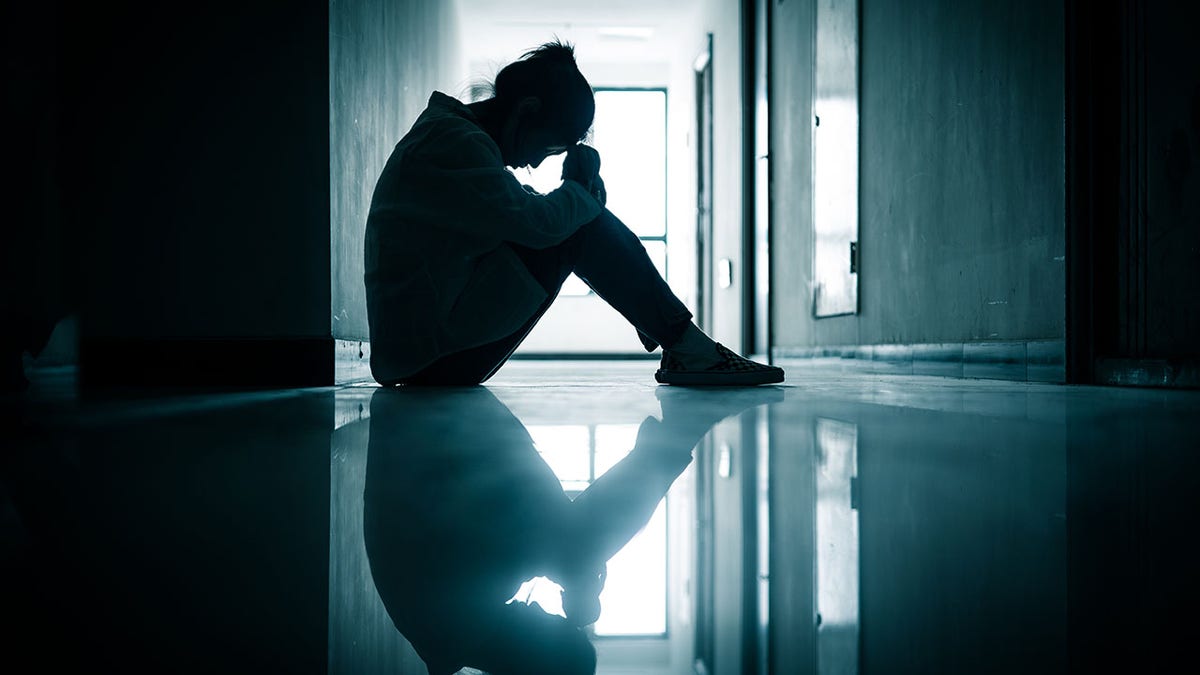CDC has done a ‘disservice’ to Americans’: Nicole Saphier
Fox News medical contributor tells ‘America Reports’ that the CDC ‘is not a leader when it comes to public health.’
Being lonely is the feeling of being alone, regardless of how much social contact someone has. It can affect us all – young, old and in between – and at any point in life.
Nearly two years ago, nationwide stay-at-home measures, subsequent business closures and the start of what came to be a perpetual state of fear imposed by media and public health entities took hold of America. Overnight, it turned usually active cities like NYC into ghost towns, leaving people with some level of social isolation for the next two years.

(iStock)
As the New York Times recently pointed out, this was done with little benefit as stay-at-home orders had no measurable long-term effect on overall reduction of COVID-19 case counts and viral transmission. What did occur though is the fueling of an existing loneliness crisis of which the consequences are only now beginning to be seen.
COVID LOCKDOWN LESSONS LEARNED – FAUCI AMENDMENT WOULD MEAN NO MORE HEALTH ‘DICTATOR IN CHIEF’
Early in the pandemic, in April 2020, 53% of Americans said they felt lonely or isolated within the past week – an increase from the year before. More recently, now in 2022, citywide health surveys in NYC found that 67% felt socially isolated in the prior four weeks.
Countless research has been published on the negative health effects of loneliness and social isolation, including inflammation and elevated stress hormones that can result in many bodily diseases. This week, the CDC released a report linking social isolation with a 50% increased risk of dementia, a 29% increased risk of heart disease and a 32% increased risk of stroke.
Public health entities have a responsibility to Americans to broaden access to resources to combat the loneliness epidemic, but there are things we as individuals can do too.
Humans are social beings, and the COVID-19 pandemic has disrupted our natural tendencies.
Give yourself a break: If you aren’t being kind to yourself, you aren’t giving reason for others to be either. Blaming yourself won’t help you out of feeling lonely but encouraging yourself and getting to the best place mentally and physically can. Stop with the unkind self-talk and take care of yourself. Remember, everyone flops, and there is no need to feel bad about it when you do.
Be nicer to yourself by practicing kinder self-talk, getting better sleep, spending more time outdoors, improving your diet and buying yourself a treat occasionally. All of this can help boost the much-needed vitamins, minerals and hormones your body needs to focus on feeling less lonely.
CLICK HERE TO GET THE OPINION NEWSLETTER
Be kind to others: Doing things for others can increase serotonin levels, the hormone responsible for feelings of satisfaction and happiness. Also, like exercise, helping others also releases endorphins, which can reduce stress and improve sleep. So, consider volunteering, buying someone lunch or donating to a worthy cause. Not only are you helping others, but you are also helping yourself.
Engage in person with people: Interacting with people face-to-face can improve our mood and reduce feelings of anxiety and depression. Activities that involve other people, like going to church, sports activities and other community gatherings can increase a sense of belonging with positive effects on our mental health.
Refocus online presence: Rather than passively browsing social media, do something that involves active (healthy) participation with other people. Trolling and criticizing others does not count. What I am talking about is playing online games, like chess, with another person. Consider joining a forum or comment on content you have an interest in. The more you interact with others while online, the more connected you can feel.
CLICK HERE TO GET THE FOX NEWS APP
Spend wisely: Instead of spending money online shopping for the latest clothes, digital accessory or what-not, refocus your money to savings and experiences. Buying the latest trend has short-lived excitement but placing money in savings and using it for an experience can have a lasting impact. Experiences can be as small as attending a museum, going to the theater or as big as skydiving, travel. The sky truly is the limit. Spending money on experiences is much better for our mental health and who knows, you may make a friend while doing it.
Humans are social beings, and the COVID-19 pandemic has disrupted our natural tendencies. The long-term consequences on our health will be extreme. Before it’s too late, refocus and engage in quality social relationships to improve your chances of living a longer, healthier life.




